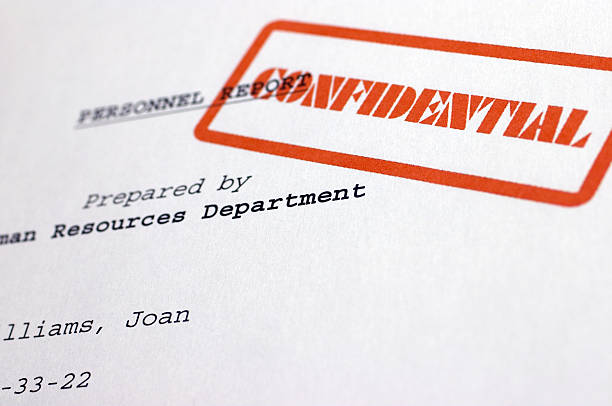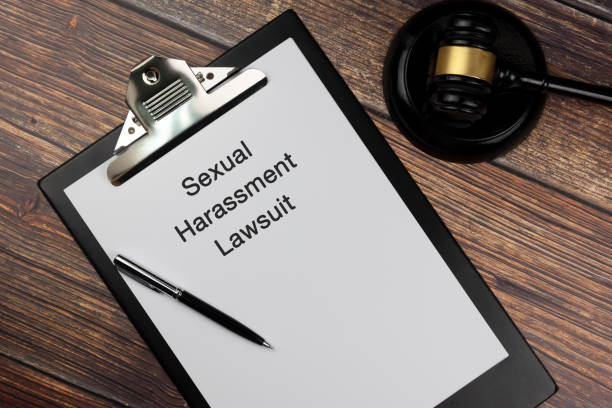
Were you silent or silenced?
A standard inclusion to all Australian sexual harassment claims is the agreement that the claim and any settlements agreements will be kept confidential. Combined it the complexities of sexual harassment, victims at the end of the day have to consider how much will “buy their silence”. And they should question should I be silenced?
In the typical process of a sexual harassment claim that is not being heard in a public hearing there are multiple steps until the compensation and negotiation phase. There is gathering evidence, drafting the claim, going through the conciliation or mediation, and the best case scenario is that both parties are open to negotiating a compensation package.
Signing away your rights
In most cases sexual harassment claims result in some type of financial settlement. However, there are additional clauses that are standard in all types of sexual harassment settlements that is packaged in what is called a “Deed of Release”. Sometimes also called a settlement agreement. In addition to the financial component, parties will typically agree upon these three industry standard clauses:
- That both parties release each other from the claim and will not bring the same issue up again.
- That neither party can disparage or talk badly about the other.
- And that each party will keep the details of the claim and agreement confidential forever more.
There are caveats to the confidentiality clause stating that necessary people like legal representatives, tax agents, and similar professions are allowed to know in order to perform their duties.

What’s the purpose of a confidentiality agreement?
The confidentiality clause allows for privacy during the argument, negotiation, and settlement phase of a claim. For a variety of reasons the employee or employer may not want the fact that a claim was lodged or settled against either party.
It is more likely for the confidentiality clause to be used as leverage by the employee to incentivise their employer to agree to a figure closer to what they are happy with. Otherwise the employee may choose to continue the process from a confidential conciliation to a public hearing.
From the point of view of the employer, one of their biggest fears is their reputational edamame if an employee were to go to news outlets or magazines with their story.
While it is more likely for a business to face reputational damage, some employees may also be afraid of their hireability after the claim is settled. Not all employees are comfortable going into a public hearing and having their name and sexual harassment history available for future employers to see.
Furthermore, once the information has been made public there is really no way to remove it permanently. Anyone will be able to form an opinion or discuss the case and that may be daunting for some employees.

Should confidentiality agreements exist or be the industry standard?
Just because confidentiality clauses are standard practice does not necessarily mean they should be. Nor does it mean people who do not sign confidentiality clauses will always or immediately try to tell or sell their story. However, it does mean they are allowed options if an opportunity ever presents itself.
The Australian Human Rights Commission and Respect@Work have have recently collaborated to create a report regarding the use of confidentiality clauses in the resolution of workplace sexual harassment complaints and claims.
The report explains that confidentiality clauses are actually harmful and counterproductive in the goal to reduce sexual harassment. Victims are silenced. Harassers’ behaviour and identities are concealed. And confidentiality prevents transparent reporting.
When a mutual confidentiality clause is agreed to and signed there is no longer an immediate incentive to change the systemic issues within the workplace.
While companies do have a statutory obligation to prevent sexual harassment in the workplace, the world is not perfect and not all companies will comply. Therefore, victims of said companies can keep them accountable as long as progressive change is being made.
The world is not perfect
In the interest of a progressive legal industry, some recommendations include changing the way a confidentiality clause is used. That it is not an “all or nothing” type of clause but one with specific limitations.
Including having a sunset clause stipulating when the clause is no longer in effect rather than it lasting indefinitely. Furthermore, that confidentiality is not necessary for a company’s internal data and reporting. Or other specific uses in the aim of improving company performance and culture.
It was ultimately recommended not to ban the use of confidentiality clauses. However, there should be more guidelines on when they are and are not appropriate. There is a need for variation and diversity that allows the clauses of a deed or settlement agreement to be specific to each case.

Is your employer tricking you?
There are some fears associated with the confidentiality clause and that employers are not clear and concise with their intentions. It is not uncommon to see employees represent and negotiate for themselves throughout conciliations and mediations.
The process was designed to be more simplistic and casual compared to the court system. Therefore, some employees will not have representation.
Due to the power imbalance, some scenarios arise where employers will try to be sneaky in the way the confidentiality clause is written. Either that it is written in a way that is hard to understand and employees may not comprehend the purpose of the clause. Or they write it in a way that is not mutually exclusive. Essentially that the employee is bound to confidentiality, however, the employer is not.
There are some suggestions to help employees not fall into any sneaky or suspicious clauses. Including, if possible, contacting a professional to explain or read any clauses that are confusing or suspicious.
Furthermore, ensure that the employee has enough time to read over the agreement and is not rushed into signing immediately. Or that any clause is written, or re-written, in plain language with no legal jargon.
Should we follow America?
When we look at other countries, such as America, it can be seen that they treat their confidentiality clauses much differently than Australia. Similar to Australia, America has a national problem of sexual harassment in the workplace.
The University of Massachusetts Amherst has estimated that over 5 million employees are sexually harassed every year. However, only 1 to 2 million ever report the offence to their workplace. And only up to 10,000 will file charges with an institute to be heard.
In 2022, Congress passed a new act, the “Speak Out Act”, to make any confidentiality clauses illegal within the scope of sexual harassment claims. This was as a direct result of the #MeToo movement and protester voices. This Act targeted companies who force new employees to sign non-disclosure agreements stating that victims of sexual harassment are not allowed to speak up or sue the company.
Employees fought back when they asked themselves why should I be silenced. Now they have greater workplace rights and the confidence to fight for future changes.

Forced to arbitrate
In a similar fashion, legislation has also been passed to prevent “forced arbitration” clauses in cases of sexual harassment. Formally known as the “Ending Forced Arbitration of Sexual Assault and Sexual Harassment Act”.
It was common for American companies to force their employees to sign “forced arbitration” clauses. Meaning that employees would sign their rights away to sue or participate in lawsuits against their employer. Instead, the employee’s only option was an internal arbitration system.
Unlike in Australia, American arbitration systems are not managed in the same way, like an established objective third party. However, they are hardly regulated and are usually chosen by the employer. They tend to be expensive, sometimes more expensive than the court system, which can result in employees paying out of pocket or having to travel far distances.
As America has come out of the dark ages of forcing sexual harassment victims into silence, Australia may want to follow suit. Being inspired by the initiative to prevent large imposing companies from bullying and threatening their employees into silence and submission. All companies should be equally liable and held responsible for the safety and care of their employees.
The Irish way
When considering other international countries, such as Ireland, they again have a different system. A bill was proposed in 2021, stating that employers could not force employees to sign non-disclosure agreements if they have suffered from sexual harassment or discrimination. However, unless it is the employee’s wishes to do so. Giving the employee the power to decide and on what terms.
With the proposition, there are strict terms when entering into a non-disclosure agreement. The employer must provide the employee with independent legal advice with no expenses. The nondisclosure agreement cannot negatively affect a third party or interfere with public interest. And there is a set duration on the agreement.
There are clearly international changes to confidentiality in the workplace and regarding sexual harassment. Employers and legislators are recognising that it is unethical to try and silence victims of their own experiences. Not all matters can be bought away and it is more than due for companies to stay vigilant and accountable.

Do I have to sign or agree to a confidentiality clause?
There is no Australian Federal or Victoria legislation that prohibits employers from requiring a signed confidentiality clause either before starting employment or to receive a settlement. However, in the same vein, no one is forced to sign a confidentiality clause and it is illegal to force someone to do so.
Unfortunately, in most cases involving a confidentiality clause it is an ultimatum rather than an option. An employee can choose not to sign a confidentiality clause, however that will mean that they also do not receive the other side of that bargain.
Some experts and employees’ question “why should I be silenced”, however the question may be “how do we change the system?”.
Nevertheless, not all hope is lost as the Victorian Government have established the Ministerial Taskforce on Workplace Sexual Harassment (the Taskforce) as a response to mitigate workplace sexual harassment. Within this, the Taskforce has made 26 recommendations.
With one including restricting the use of non-disclosure agreements in relation to workplace sexual harassment. Majority of the recommendations have been agreed to and supported by the Victorian Government. It is just up to the government to introduce the bill and enact the laws.
What if I break a confidentiality clause?

If a non-disclosure agreement or confidentiality clause is written up in the correct contract procedure then it is considered a legally binding document. If an employee were to breach any confidentiality clause then that gives their employer the right to sue for financial compensation. However, some employers may try a mediation approach first if the damage is repairable.
In the context of sexual harassment the company may face reputational damage or public backlash depending on what information was revealed. Therefore, it is less likely for a company to be lenient if one of their clauses were broken.
This is why it is imperative to understand what employees are signing and what limitations they may face in the future. If an employee is unsure if they are allowed to disclose information or if someone falls under an allowed profession to receive the information (legal representative, tax agent) then it is safest to ask an industry professional. In Australia’s current legislation silence can be bought and signed away.
Let us discuss “why should I be silenced” together
If you’re looking to lodge a sexual harassment or discrimination complaint in your state, our expert team at Sexual Harassment Australia can help. We don’t silence employees, we help them go through the necessary channels to have their matter heard and compensated.
We are not lawyers but we have been helping women, men, and all kinds of victims to help bring their perpetrators to justice. We are passionate about helping people from all walks of life, and fight against toxic employers.
Call 1800 333 666 for a free and confidential discussion today.












